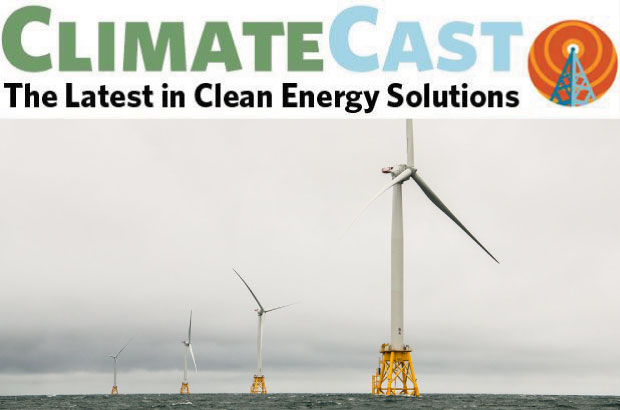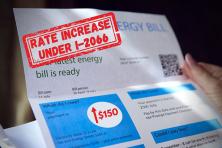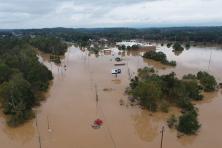It’s a new year—a critical election year— and it’s time to start acting like climate change really matters, argues climate journalist Sammy Roth. Opportunities for progress on clean energy are expanding in the Northwest and across the country, thanks to increasing public investment. But climate advocates are not pausing too long to celebrate, faced with political uncertainties on the horizon and pressure to defend state-level climate policies.
Climate progress likely to face a challenge in Washington
In Washington, a “gold standard” cap-and-invest climate law that went into effect last year will now be the subject of attempts to weaken or repeal the law. Opponents of the Climate Commitment Act (CCA) have filed signatures calling upon the Legislature to repeal it--or to hang its fate on the ballot in November. Meanwhile, lawmakers will consider various tweaks to the law’s implementation provisions during the legislative session beginning this week. The CCA requires the state’s largest polluters to pay for permits based on the amount of pollution they create. The resulting revenues--which totaled about $2 billion in 2023--will be invested in programs to protect the state’s air and water quality, and to provide relief to communities particularly vulnerable to pollution-related health hazards. Legislative priorities for this year include expanding the list of projects to be funded by CCA dollars, including a proposed utility bill credit for low- and middle-income residents. All of these programs would be threatened if the Legislature or voters repealed the law. Repeal efforts are being spearheaded by a right-wing campaign that is also backing initiatives to defund long-term care and roll back the state’s capital gains tax, among other conservative priorities. Climate advocates are among those prepared to campaign against the repeal effort, noting that the primary beneficiary of repeal would be the super-profitable oil and gas industries, while communities would be deprived of meaningful relief from fossil fuel pollution.
For our climate, justice delayed is justice denied; Oregon court delays implementation of the Climate Protection Program
Oregon’s Climate Protection Program is a landmark law that aims to curb greenhouse gas pollution from the state's biggest oil companies, gas utilities, industrial processes, and other major fossil fuel sources. In late December, the Oregon Court of Appeals issued a ruling invalidating Oregon’s Climate Protection Program based on a procedural technicality during the rulemaking process (NW Natural Gas Co. v. Environmental Quality Commission). The legal challenge to Oregon’s cornerstone climate program had been brought primarily by oil and gas companies. Here is a joint statement on the ruling on behalf of the coalition of environmental justice, climate, and business organizations who intervened defensively in the case, including Climate Solutions. Importantly, the Court only ruled on an administrative procedural error, not the state’s authority to regulate greenhouse gas emissions or enforce the Climate Protection Program.
U.S. offshore wind in generates first-time power—and more progress
The nation's largest-to-date offshore wind turbine farm was brought online earlier this week, sending up to 5 megawatts of power to the grid. Located off the Massachusetts coast, Vineyard Wind coming online represents a major milestone for clean energy advocates in the region and beyond. When fully constructed, 62 turbines will generate enough electricity to power 400,000 homes across New England. This and other offshore wind projects are being developed on both coasts thanks to clean energy funding contained in the Infrastructure Investment and Jobs Act (IIJA) and Inflation Reduction Act (IRA). Closer to home, the US Bureau of Ocean and Energy Management (BOEM) is considering two areas approximately 18-30 miles off the Oregon coast for the development of floating wind turbines. The proposal has received a broad range of responses from stakeholders, ranging from support to opposition, including Tribes, fishing groups, port officials, renewable energy developers, NGOs, and local community members. For more information about Climate Solutions’ position on offshore wind and this specific process, read our blog here.
As states gear up for a likely consequential legislative session, we’d love to be in touch in more ways that work for you to keep taking action on climate. Sign up to receive about three to four alerts a month and something to do each time with the touch of a button.





